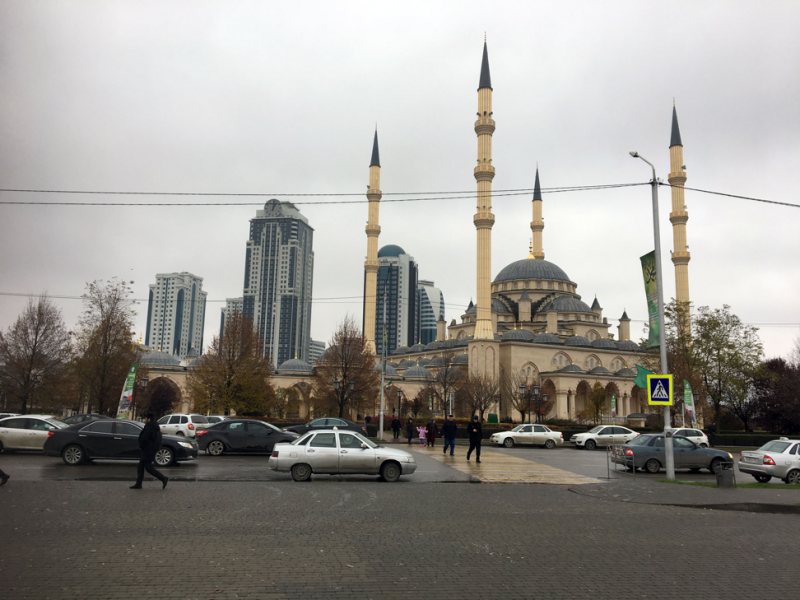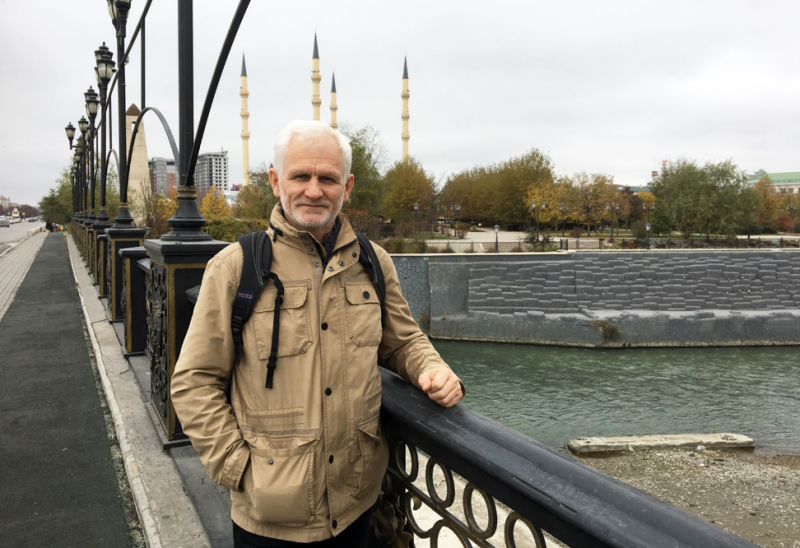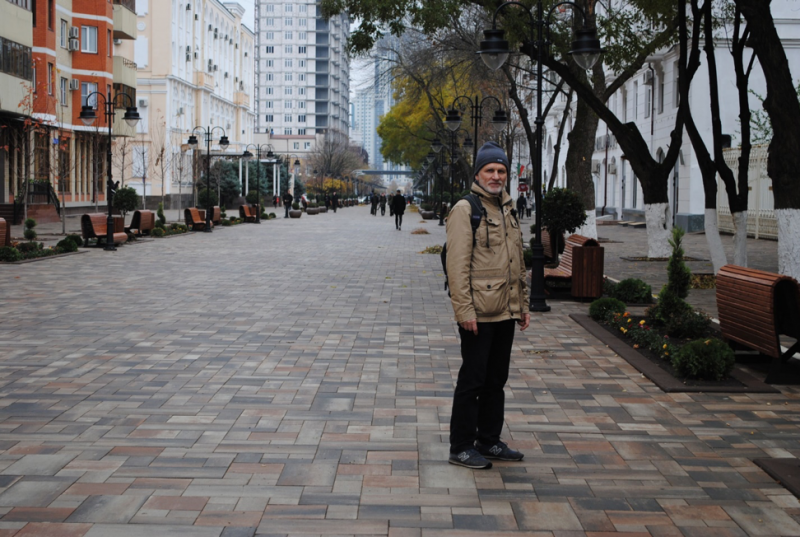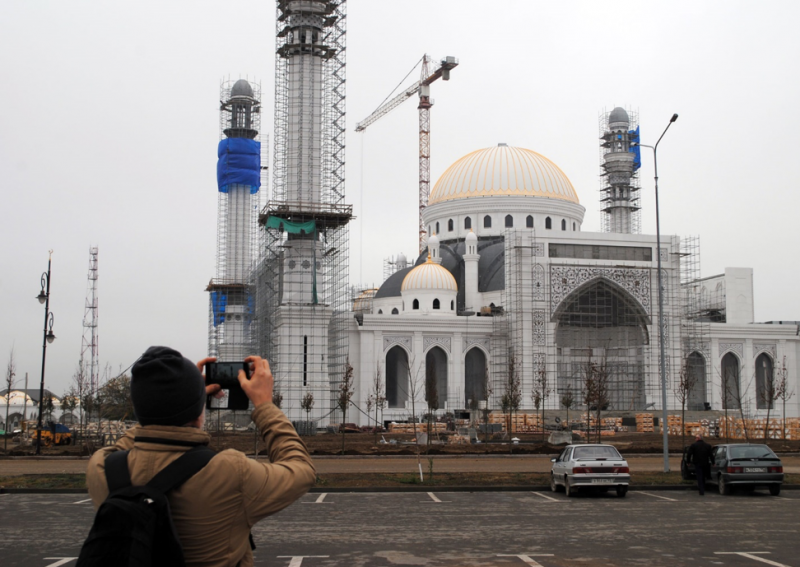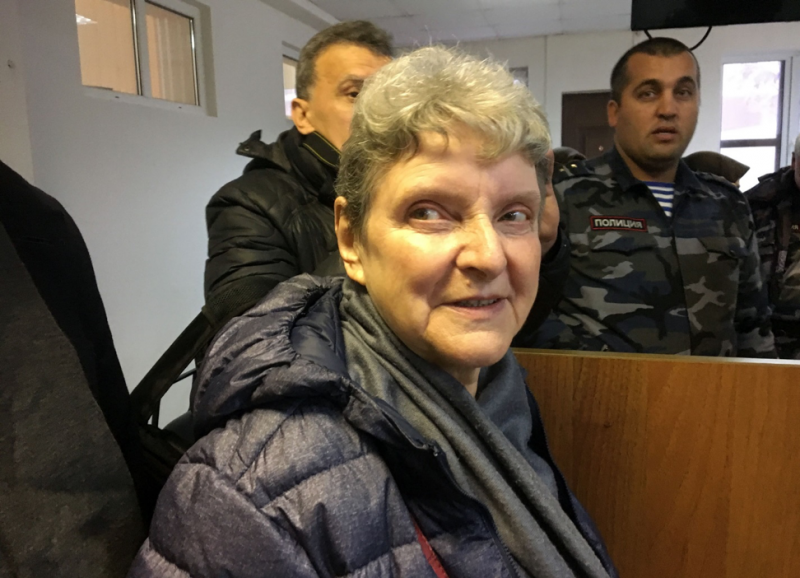Chechnya Through the Eyes of Belarusian Human Rights Activists Photo
Almost five months ago, the Shali distric court in the Russian constituent republic of Chechnya opened the trial in the case of human rights defender Oyub Titiev. When it comes to cases of politically motivated charges against human rights defenders, this constitutes one of the most high-profile trials in recent time in Russia.
Oyub Titiev is the head of Memorial Human Rights Center’s office in Grozny, Chechnya. He was detained in January 2018 and is currently facing up to ten years in prison on fabricated charges of unlawful drug possession. The attack against the prominent human rights defender seems by all means to be yet another step in the ongoing campaign to oust the last critical voices from the region.
In late November, two Belarusian human rights defenders – Ales Bialiatski and Siarhei Sys – traveled to Chechnya on a solidarity mission to visit Oyub Titiev’s trial. To stand trial in a case built on politically motivated charges is a familiar experience for Ales Bialiatski who, in 2011, was arrested and detained, and accused of tax evasion. Ales Bialiatski was convicted of the fabricated crime, and spent nearly three years in prison. This however did not stop him from continuing his fight for human rights. He has, since his release, continued his important work. In 2014, Civil Rights Defenders awarded him the Civil Rights Defender of the Year Award for his courage to stand up for civil and political rights in the country.
To Ales and Siarhei, visiting the trial of a fellow human rights defender was a way of showing moral support. Upon returning home, they shared with us a photo reportage they made while in Chechnya.
Chechnya through the eyes of Belarusian human rights activists
A photo reportage by Ales Bialiatski and Siarhei Sys:
We recently travelled on a solidarity mission to Chechnya. We say solidarity mission as the purpose of our trip was to attend two of the hearings in the criminal case against Russian human rights defender Oyub Titiev, who is the head of Memorial’s office in the Chechen capital Grozny. Oyub is currently being considered in the Shali city court, and the case has been proceeding for about five months. He is accused of illegal possession of a large amount of drugs; charges that are clearly false and trumped-up. Nevertheless, these charges could lead to a 10-year prison sentence for the prominent human rights defender.
Sometimes words alone are not enough. That is why we have decided to make a detailed photo essay from this trip, with the aim of sharing our personal impressions of the city where Oyub Titiev is currently being deprived of his freedom. We will also share our photos and reflections straight from the court room where the highlighted trial of the Chechen human rights defender is held.
Grozny – a rebuilt city
The city of Grozny has been rebuilt almost anew after the destructive Russian-Chechen wars. When we arrived in the Chechen capital on 18 November, we were met with modern large-scale constructions and hundreds of lights shining in the city centre. Right in the middle of the city stands one of Europe’s largest mosques – the “Heart of Chechnya”. The mosque was named after the previous leader of the constituent republic – Akhmat Kadyrov – and a large number of his armed troops.
The modern and expensive features of Grozny tell us that the Russian government is not shy in giving the Chechen leadership enormous sums of money in exchange for showing loyalty to the Kremlin.Our observations are further confirmed when having a look at the Grozny city hall, which is decorated with portraits of not only Akhmat Kadyrov, but also the current Russian president Vladimir Putin.
Prominent city buildings have in many cases become displays for showcasing what is considered to be the importance of the first Chechen president Akhmat Kadyrov. Many of them are decorated with quotations and sayings. One such example can be found on the building of the National Museum.
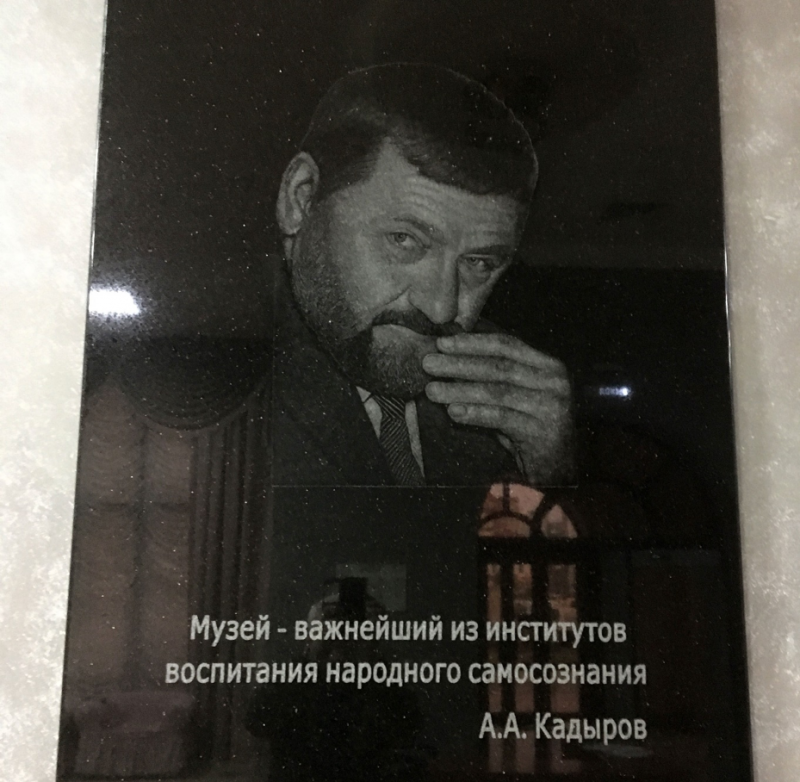
- Featured in the photo is Akhmat Kadyrov along with a quote that translates to “Museums are the most important institutions of education of people’s self-consciousness”.
The museum was restored in 2007. We learned that 90 percent of the museum exhibits were looted and lost during the last Chechen wars. Here, the saying “if you want to conquer a nation, first destroy its culture” is clearly accurate.
After the wars, it was not only the museum that was in need of restoration. Large parts of the city of Grozny had been destroyed in the battles. The below photo shows Ales Bialiatski at one of the restored streets near the office of Nurdi Nukhazhiev, the Chechen ombudsperson who is loyal to the local authorities.
Signs of loyalty to the Chechen authorities can be found all across the city. On many apartment buildings, there are sacred triumvirates of portraits displaying the Russian President Vladimir Putin, the former President of Chechnya Akhmat Kadyrov, and the current head of Chechnya Ramzan Kadyrov, son of the man he succeeded.
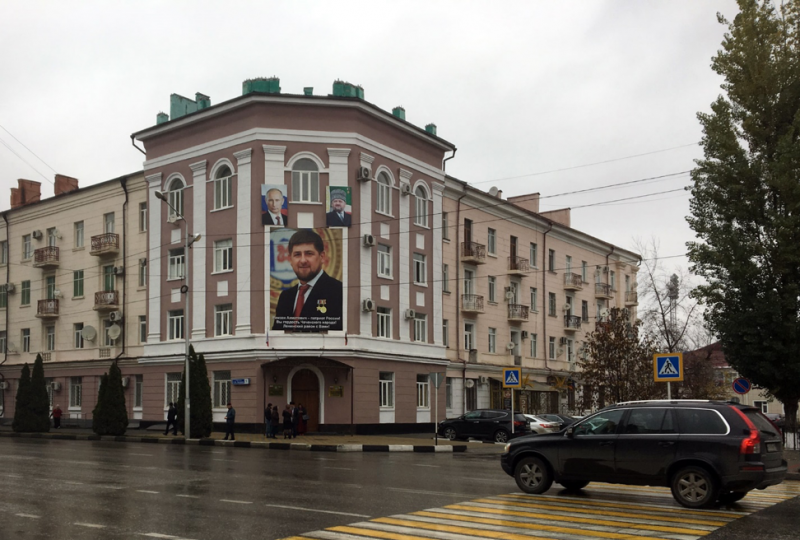
- Ramzan Kadyrov – here depicted on the large portrait – is the current leader and local dictator of the constituent Republic of Chechnya.
Earlier this year, Ramzan Kadyrov declared that “I am engaged in protecting human rights in Chechnya,”. But after the arrest of Oyub Titiev on 9 January 2018, there are practically no independent human rights defenders left in the region.
Meeting Oyub Titiev behind bars in the city of Shali
Traveling from Grozny it takes a little more than 40 minutes to reach the regional centre of Shali, where the trial of Oyub Titiev has been ongoing since 19 July 2018. At the time when the trial started, he had already spent more than half a year in detention. The city was severely damaged during the first Chechen war, hundreds of people died here, and houses and industrial buildings were destroyed.
Today, one has to look very closely for even a sign of destruction. We see nothing that hints that dozens of private houses were demolished in the centre, or that hundreds of people were forcibly relocated to the outskirts of the city. The Moscow money have contributed to a completely new face of the recently almost deserted city.
Currently, the construction of the largest mosque in Chechnya is nearing completion. The mosque is set to be named after Ramzan Kadyrov and is planned to hold up to twenty thousand believers. We learn that the building is decorated with marble from the Greek island of Thassos and that its gold-plated chandeliers are made in Turkey.
The court – in which we are soon to attend the hearings in the case of Oyub – is lodged in rented premises almost right opposite the mosque. The actual courthouse is still under construction. When entering the room, we see Oyub standing in a metal cage surrounded by a convoy. He has been brought to the court from the Grozny detention centre.
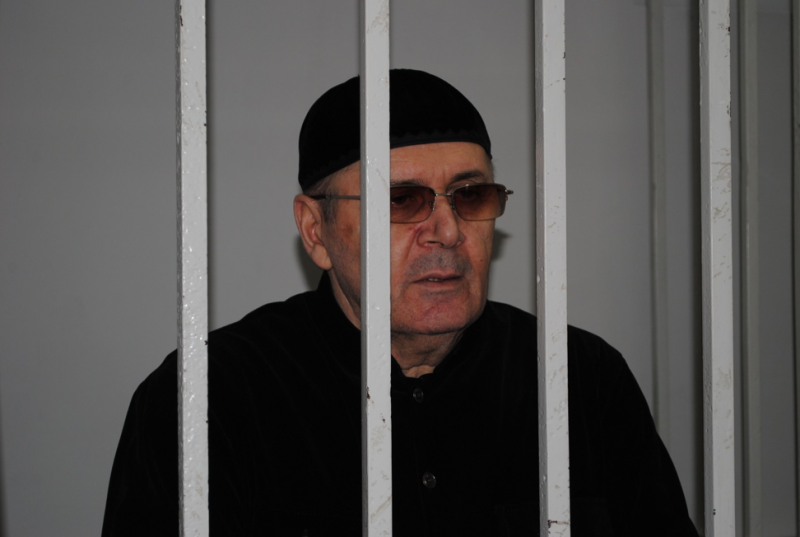
- Russian human rights defender Oyub Titiev has been detained since 9 January 2018. He stands falsely accused of unlawful drug possession and risks up to ten years in prison.
Several bailiffs stand guard in the room. In addition to a pistol, one of them clasps an automatic weapon by the handle.
Except for the bailiffs, we find familiar faces in the room. Oyub Titiev’s lawyers from outside of Chechnya, Pyotr Zaikin, Marina Dubrovina and Ilya Novikov, are also there. So is the prominent human rights defender Svetlana Gannushkina. Svetlana, who is the chairperson of the Civic Assistance Committee, has travelled to Shali from Moscow. She has twice acted as a guarantor for changing the detention measure for Oyub Titiev. Both of these petitions have however been rejected by the court, as it is dependent on the executive branch.
We also see Nikolay Rybakov, deputy Chairman of the Yabloko party, and Elena Milashina from the independent newspaper Novaya Gazeta.Elena is one of the few journalists who has continued to cover Oyub’s case. And then there is us, two Belarusian human rights activists on a solidarity mission.
One of the people that is missing in the room is Aslan Tilkhigov, who was Ouyb’s first local lawyer. Aslan was forced to leave Chechnya urgently for security reasons, as he had received threats to his life.
The case of Oyub Titiev
Over the last few years, Oyub Titiev received threats regularly. In fact, he was forced to leave Chechnya several times due to security reasons. This is a situation that has become a norm in the troubled region. In 2009, the previous head of Memorial’s Grozny office – well-known human rights activist and journalist Natalia Estemirova – was kidnapped and murdered as a result of her work. Other human rights organisations have been ousted from the region. For example, in 2014 and 2015, the Grozny office of the human rights organisation Committee Against Torture was destroyed.
It was in this context that Oyub Titiev’s car was stopped on 9 January 2018. A package of marijuana was planted in it when the police checked Oyub’s documents, and he was detained and brought to a detention centre. It is no doubt that his case has been fabricated by the Chechen authorities in order to hinder him from continuing on his important work.
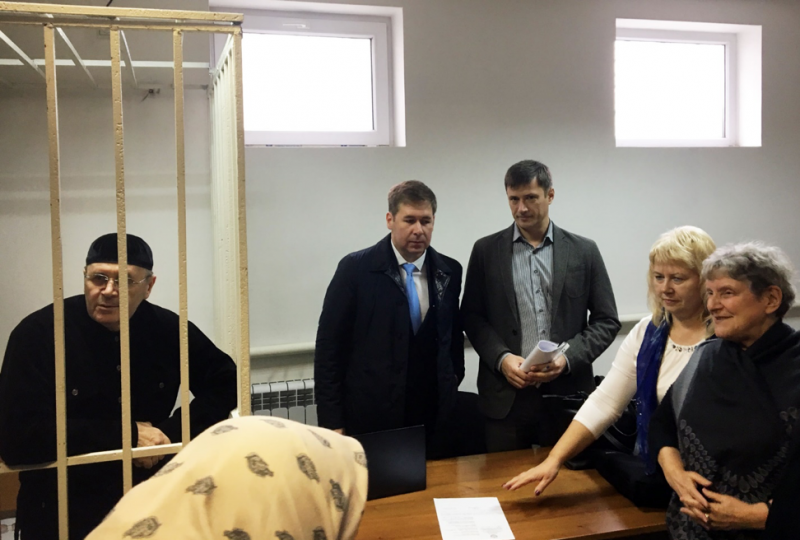
- Oyub Titiev’s Moscow lawyers Petr Zaikin, Marina Dubrovina and Ilya Novikov, and long-term Russian human rights defender Svetlana Gannushkina.
The dictatorial regime in Chechnya, supported by those in power in Moscow, is fighting human rights defenders with dirty methods. As many local human rights defenders before us have noted, it seems that this case is one in a chain of events aimed at ousting all human rights activists from the region. But whether the fierce dictatorship will succeed in completely destroying ordinary people’s natural desire for truth and justice still remains a very big question.




